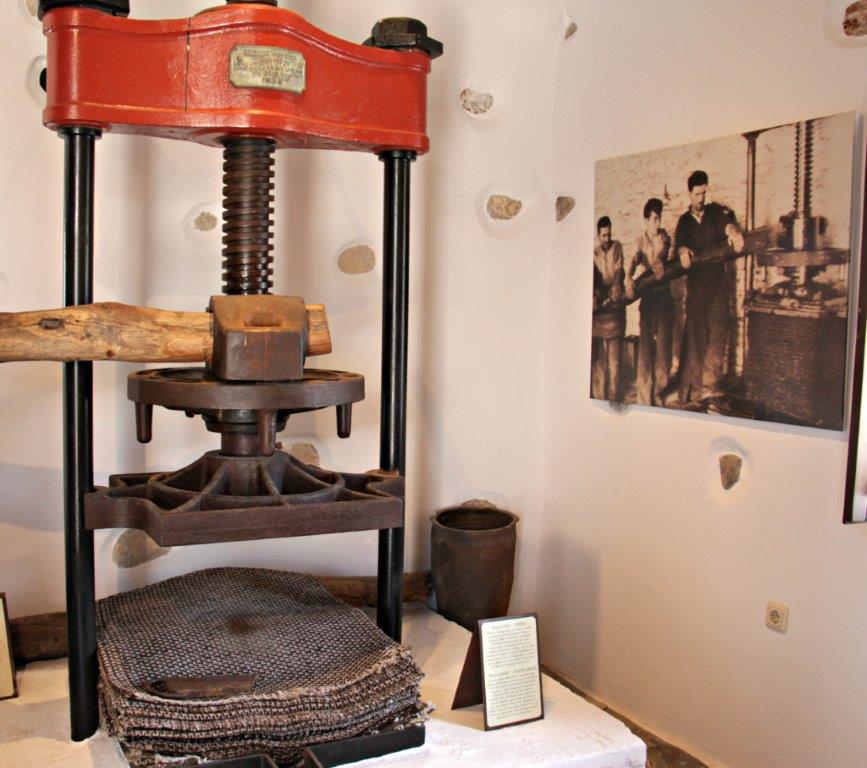
Greek Olive Oil
Greece has a long and proud history of pressing Greek olive oil and it is very closely linked to the food and culture of the country. Evidence has been found of olive cultivation and Greek olive oil production going back over 50,000 years.
Over the years, olive oil has been used for cooking, religious ceremonies, for lighting in oil lamps and for personal skin care products including soaps, cosmetics and lotions/oils.
Greece is the third largest producer or olive oil, behind both Spain and Italy. The island of Crete is the center of commercial olive oil production in Greece. Greek olive oil is well renowned for its quality and a lot of top quality olive oil is made from Kalamata olives. In the prestigious New York International Olive Oil Competition held annually in New York City, Greek olive oils are always winners of top awards for quality.
In an acknowledgement of the quality of Greek olive oil, in 2015, Costco changed their house brand Kirkland Olive Oil to olive oil sourced from Greece.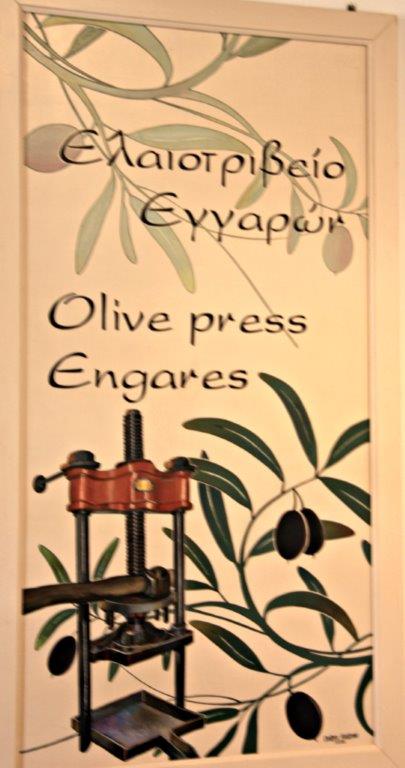
Buying Olive Oil
There are several grades of olive oil which denote the quality and flavor.
Cold pressed, extra virgin or virgin olive oil is generally what you want to buy. Virgin means it is from the first pressing of the olives. Cold pressed means no chemicals or heat were used, only pressure to squeeze the oil from the olives creating a healthy and natural oil.
Cold pressed Extra Virgin Olive Oil (EVOO) is the highest quality olive oil. It is good for salad dressings and other cold (raw) uses. High quality and aromatic. Unfiltered EVOO will be cloudy and filtered oil should have a clear color. In order to be labeled EVOO is has to have low acidity levels. This is olive oil in its purest form, basically freshly pressed olives put into a bottle. It is also the most expensive type of olive oil.
Extra Virgin Olive Oil (EVOO) can be used for low to medium heat cooking. You do not want to use cold-pressed oil for cooking.
So yes, if you are a heavy user of olive oil you probably need both Cold pressed EVOO and EVOO in your kitchen as they have different uses and flavor profiles.
Olive oil is considered to be one of the healthiest oils and is an integral part of the healthy Mediterranean diet. There are many health benefits of a diet high in olive oil including improved heart health, lower risk of diabetes and other diseases including Alzheimer’s, osteoporosis and cancer.
If you want more information on what type of oils are healthy and what is the best use of certain types of oil for cooking, this article on Healthy Cooking Oils might be helpful.
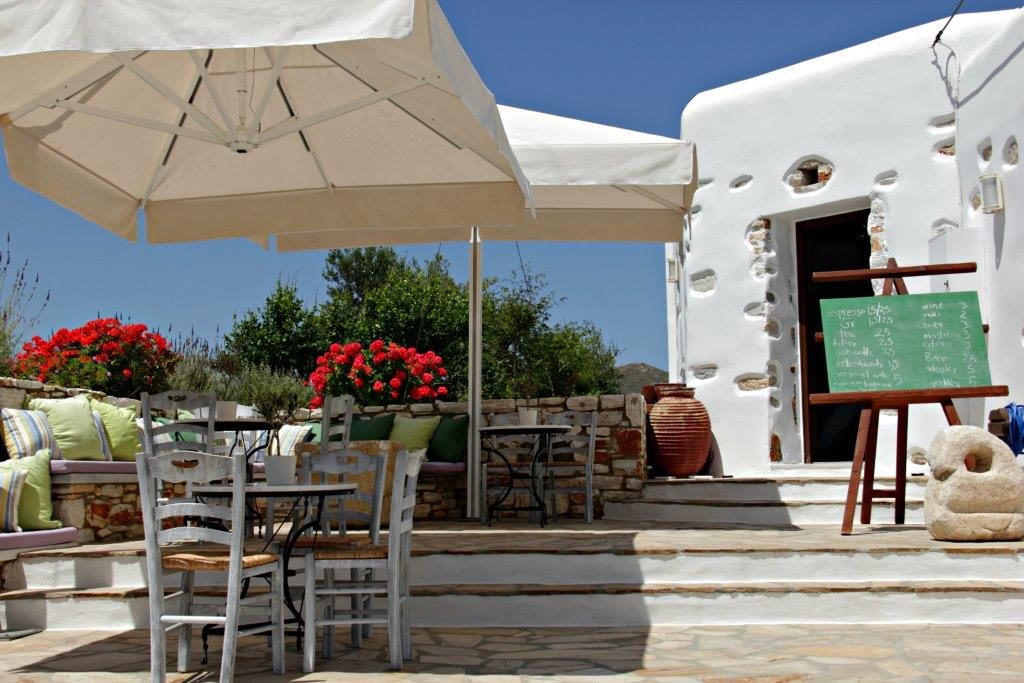 Olive Oil in Greece
Olive Oil in Greece
One of the things we found fascinating about Greece is the fact most families grow their own olives and then have them pressed for personal use. Olives and olive oil in Greece is very much a family affair, and this tradition still continues today.
Naxos produces a lot of agriculture and olives have been and continue to be an important crop both for commercial production and for personal cultivation.
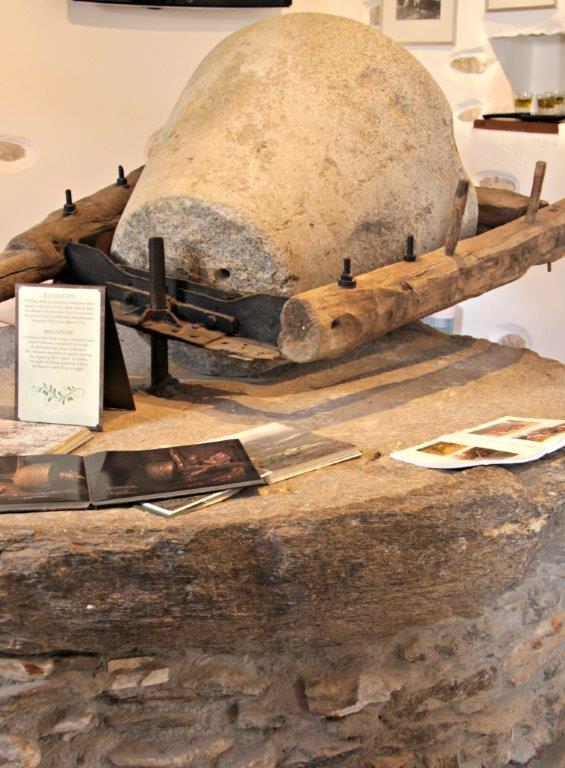 In the Naxos village of Eggares you can visit a traditional olive press and see how the process of making oil took place before industrial machines. The small museum is very well done. Someone walks you through the traditional process of making olive oil and you can ask questions. There are old pictures of the mill and village. There is also a video explaining the process. At the end of your visit you can taste various olive oils and olive products including olive jam, tapenades and olives. The small shop also has a variety of other olive oil-based products including soaps and lotions.
In the Naxos village of Eggares you can visit a traditional olive press and see how the process of making oil took place before industrial machines. The small museum is very well done. Someone walks you through the traditional process of making olive oil and you can ask questions. There are old pictures of the mill and village. There is also a video explaining the process. At the end of your visit you can taste various olive oils and olive products including olive jam, tapenades and olives. The small shop also has a variety of other olive oil-based products including soaps and lotions.
Originally there were over 90 of these small manual olive presses in villages throughout Naxos. Each family would bring their olives to the mill to be pressed. You paid for the use of the press with a small percentage of the olive oil produced. Each family would grow enough olives to produce olive oil to cover their own needs, thus not needing to purchase oil.
Over the years as industrial machines were introduced to press the olives, pressing has become more centralized and these small mills in the villages are no longer used. However, the tradition of each family growing their own olives, harvesting the olives together and then pressing their own oil does continue. Now the olives are taken to the large mill, processed (more quickly) and each family pays a small fee per litre (or you can still pay in olive oil if you prefer).
At one restaurant we ate at, Picasso, on the beach front in Naxos, the family olive oil was for sale. Their family olives were grown on Crete. They were able to produce more than is required for personal use by the family and the excess was bottled and sold, thus providing a modest income. This is not uncommon for families producing larger amounts of olives.
It is fantastic this family tradition has survived. And it is healthy. Producing olive oil from your own trees, freshly harvested means you are getting fresh, pure oil. I love the self sufficiency of it, the health aspects and the way it brings the family together.
If you want to learn firsthand about the importance and tradition of olive cultivation and olive oil production to the Greeks, it is well worth a visit to Eggares and the traditional olive press.
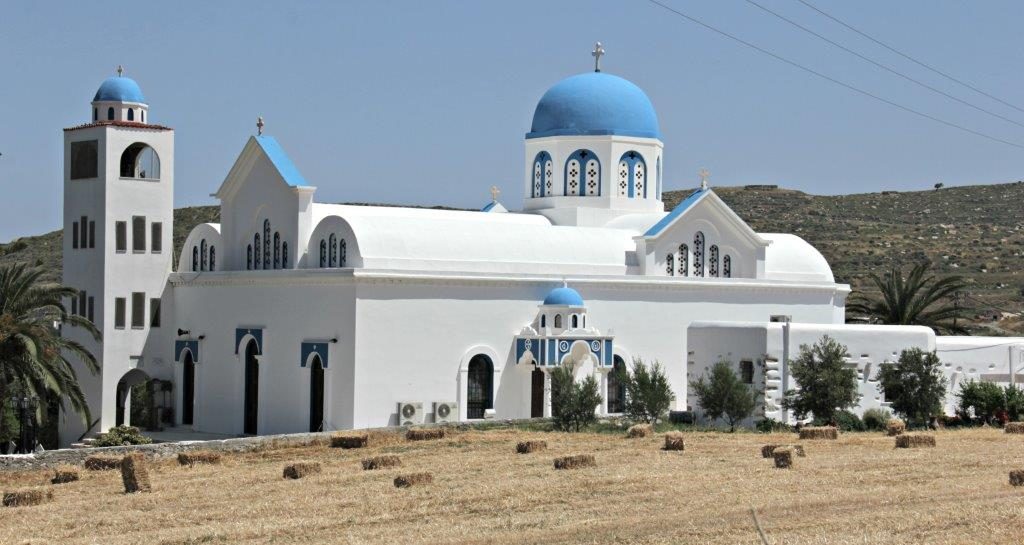


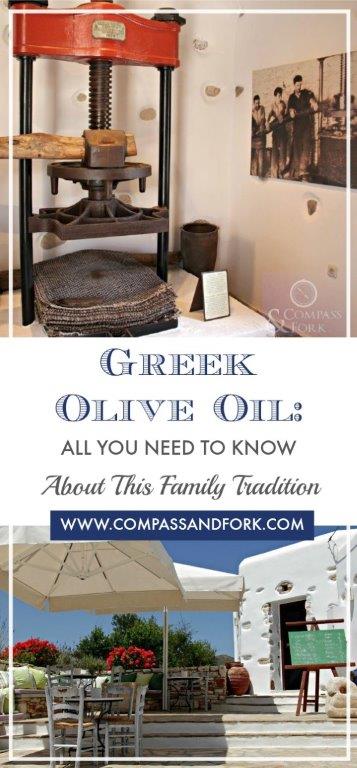
Valentina
Such an informative post. Thank you! I’ve been doing a ton of baking with olive oil lately — using it as a main ingredient and I love it! My favorite Greek olive oil is from Arianna Trading Co. Delicious!
Editor
Isn’t it delicious? We love olive oil as well from Italy, Spain and Greece (and Cyprus). They’re all good.
Sara
Thank you for sharing this. I am pretty clueless about olive oil and just buy whatever brand at the store, so I really learned a lot by reading this!
Editor
Glad to be of service Sara. We really enjoyed this day so it was a pleasure to write about it. Thanks for your comment.
kathi @ Laughing Spatula
Did you catch that 60 minutes episode about black market olive oil and that they think 40 percent of all olive oil is actually diluted with canola oil? (numbers are subject to my memory :). I am always worrying about the quality of my olive oil now! Would love to try this stuff! Great read like usual!
Editor
Kathi, I haven’t seen the 60 Minutes segment you are talking but it doesn’t surprise. I’m afraid I have very little faith in big companies so always prefer to buy from the little guy. (Yes and they employ people too).
whitney
I keep hearing that EVOO has to be used at mediumish heat, but lots of Greek people I’ve spoken with tell me they deep fry in it, so I don’t know who to believe anymore these days lol.
Editor
Isn’t that the truth but in Greece I suspect that is the only oil they use. Thanks for your comment.
Tracy @ Served from Scratch
What a great post! Olive oil is something that’s a big part of my everyday life, but I don’t know enough about it. Thanks for the lesson!!
Editor
Your welcome Tracy. Until we went through this quaint museum we were totally unaware. Thanks for your comment.
Laura | Wandercooks
Fresh, high quality olive oil is absolutely amazing. We love it with dukkah and fresh fluffy bread. It’s the best pre-dinner appetiser with a glass of wine. Thanks for sharing the history of its production in Greece, would love to visit Eggares to try it fresh from the press one day!
Editor
Laura, the best thing about the whole experience was that Greeks still grow their own olives and have them pressed so they have a year’s supply of great olive oil. I love the history of it all. Thanks for the comment.
Sam | Ahead of Thyme
I love olive oil and use it so often but never thought about its origin. Great post!
Editor
The history of ingredients in old cultures like this is certainly fascinating. No wonder the Greeks revere their olive oil. Thanks for your comment.
Lucy
So interesting! I never knew so much about the history of olive oil. I’ve always wanted to go to Greece and basically eat everything, and this post is only fueling my desire 🙂
Editor
So pleased you enjoyed the post. We loved Greece and you can click on the link to see a whole series of Greek food and travel posts.
Lisa @garlicandzest.com
I currently have 3 large containers of olive oil in my pantry — one is from Greece and it’s EVOO. I’m going to look for the cold-pressed variety too!
Editor
Lisa, I always thought that EVOO was always the premium product, but then we found out about cold pressed when in Naxos and visited this wonderful old mill. Thanks for your comment.
Christine
Olive oil is my preferred oil, even though many currently like coconut oil. I use in moderation and love it tossed on salads. I try to find the best possible quality and will check to see that it is cold pressed. Love the photos of Greece – would love to get there some day! 🙂
Editor
Christine, I’m sure you will get to Greece one day. It is definitely worth the visit. Thanks for your comment.
Doreen Pendgracs
I haven’t had cold pressed olive oil since I was in Greece. It tastes SO much better in salads! But my budget generally keeps me in the range of EVOO. I think I will treat myself to some of the really fine cold-pressed version for my upcoming birthday. Thx for the interesting post.
Editor
Glad it brought back some good memories Doreen. Not a bad strategy to just use the cold pressed oil for special occasions. We learned a lot ourselves about olive oil when preparing for this post.
Mar Pages
I can’t imagine a world without olive oil, and I never knew extra virgin was supposed to be clear! I never thought about the origins of something I often use, but I’m glad I know now- thank you! Hopefully one day I get to see it made in person. 🙂
Editor
It is a fascinating subject. The scary thing is that our forebears knew all this as they home-made everything or shared it in the community. How times have changed! Thanks for your comment.
Milosz Zak
Do you know what they did with the extraneous organic material? Is there a use for it? I’m thinking biofuels, or perhaps some sort of fertilizer, but am really not sure. I feel the EU would’ve implemented some sort of recycling directive by now.
Editor
I’m guessing some of it is used for mulch. I’m not aware of anything else it is used for. Thanks for your comment.
Elizabeth
Nothing beats a good quality olive oil. I get mine shipped direct from Italy, but I confess to have never tried Greek olive oil before. I must remedy this!
Editor
Elizabeth, Italian, Spanish and Greek olive oil – they’re all great! We have taken to buying ours from smaller producers. Thanks for your comment.